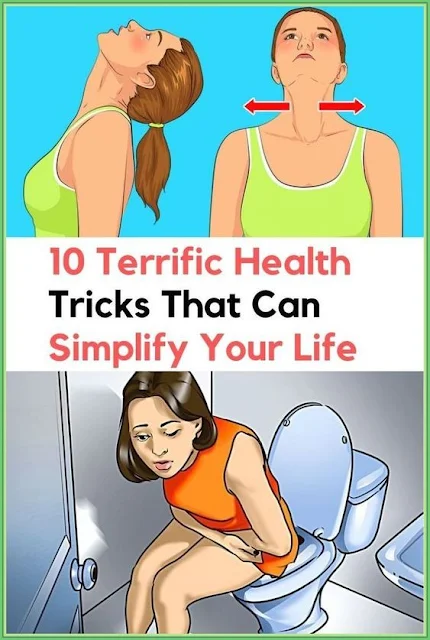Contrary to popular belief, drinking a cup of coffee makes your power nap more effective. While there are many well-known health hacks, some like these are relatively unknown and seem counter-intuitive.
1. At night go to the toilet with one eye closed.
Going to the toilet in the middle of the night after well having fallen asleep can sometimes wreak havoc on your sleep. This is because after waking up when you switch on the lights to go to the toilet the sudden bright light makes the brain to assume that it is morning time, and that switches off your sleep.
Therefore by keeping just one eye open you are minimizing the amount of light that enters your retina and signals your brain. After you are done with your toilet business, you will be able to fall asleep very fast.
2. Pulling on your ears can have a range of health benefits.
Pulling on your ears has health benefits. Reflexology tells us that there are pressure points all across our ears that can help to alleviate many health problems, from easing a headache to improving your digestion.
You can ease minor pains by pressing and pulling the following points on your ears that correspond to different areas of the body:
1. Back and shoulders
2. Various organs
3. Joints
4. Nasal sinuses and throat
5. Digestion
6. Head and heart
3. Roll your head to ease limb pain.
Waking up in the middle of the night and feeling that “pins and needles” sensation in our arms is something many of us have experienced. This is because sometimes while sleeping, we roll over and inadvertently sleep on our arms or our hands, which causes an obstruction to the normal blood flow and leads to a decrease in the amount of oxygen being received by that body part.
To relieve this pain, rather than trying shake your arms or “wake them up,” try moving your head from side to side. This should help decrease the pain because nerves in the neck go straight down from your head to your arms.
4. Frighten yourself to stop your hiccups.
There’s never just one hiccup. When a bout of hiccups comes on, it seems almost impossible that it will ever stop, although they do eventually stop after a few minutes in most cases. To stop hiccups in a jiffy, ask someone to suddenly scare you or surprise you.
This sudden action causes the heart to beat fast and increases the blood circulation. And at the same time diverts our attention from the hiccups.
5. Sleep in a cool room.
Sleeping in a cold room is good for your overall sleep quality. It helps you to fall asleep fast and also reduces the chances of diabetes by aiding the body in burning more calories. It also increases insulin sensitivity, which lowers the risk of type 2 diabetes.
Keeping the room temperature between 60ºF and 68ºF encourages the body to produce the hormone melatonin which, in addition to promoting sleep, is also a powerful anti-aging hormone.
6. Drink coffee to have a better quick nap.
A Japanese study found that people who took a “coffee nap”—a 20 minute nap after drinking 1-2 cups of coffee—felt more alert and performed better on computer tests than those who only napped without drinking coffee.
7. Cough to dull the pain from a doctor’s needle.
Not many people enjoy being pricked by a doctor’s needle, even if it means you’re being protected from a disease. But there’s one easy way to ease the pain from a needle’s sting: coughing. Numerous studies have found that coughing when getting a shot reduces the pain sensation.
Scientists are not sure why this happens but suggest that coughing might induce a rise in blood pressure, which reduces the pain perception.
8. Make eating ice cream a fun experience, not one that causes a headache.
A headache that comes on after eating or drinking something very cold is a very common occurrence. This happens because when you are eating something cold, the brain tries to keep itself warm and to accomplish this certain changes take place in the body, which in turn leads to a headache.
You can get rid of this pain and simply warm your brain up by rubbing the upper part of your mouth with your tongue.
9. Don’t brush your teeth after eating.
Brushing right after eating a meal might seem like the best way to flush all the debris out of your mouth, but it’s not. This is because many of the food items that we eat or drink are acidic (think tomatoes, lemons, orange juice, etc.). Brushing right afterward can speed-up the acid’s effect on your enamel and cause it to erode. Wait for about 30 minutes after your meal before using your toothbrush.
10. Chewing gum boosts your memory.
A study conducted at Coventry University found that chewing mint-flavored gum can dramatically decrease feelings of tiredness and make a person more aware of their surroundings. In a separate study, UK based psychologists found that chewing gum can improve test scores and improve memory by about 35%. So next time, rather than gulping coffee, maybe try chewing gum while studying for an exam.
What other health hacks do you have in your arsenal? Tell us in the comments below and if you found this article useful, share it with your friends.
